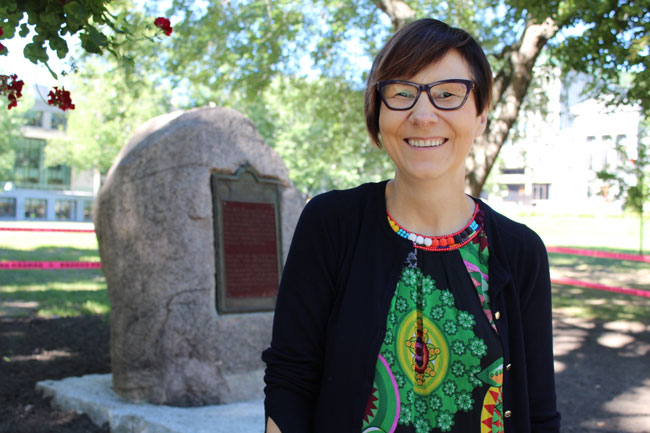
By McGill Reporter Staff
Cindy Blackstock is a member of the Gitksan First Nation who has made her life’s work fighting for fair treatment of the 163,000 First Nations children. A professor at the School of Social Work, Blackstock is Executive Director and co-founder of the First Nations Child and Family Caring Society of Canada.
Blackstock believes culturally based equity means having the supports and services First Nations children need to live freely as they are, with all their rights recognized. All children in care experience the trauma of separation from their families, she says, but for First Nations children the context exacerbates the anguish. “In the case of First Nations, Metis and Inuit children this separation happens in the context of the multi-generational trauma arising from residential schools, the 60’s scoop, and the contemporary federal underfunding of child welfare services,” says Blackstock. “All of these factors mean First Nations children are more likely to go into care. The result is a perpetuation of colonial trauma which includes loss of culture and language.
“Equity and child welfare and Jordan’s Principle are among the Truth and Reconciliation Commissions’ top Calls to Action,” she says.
[Editor’s note: Jordan’s Principle is named for Jordan River Anderson, a five-year-old Cree child who spent several years, and eventually died, in hospital while the Manitoba and federal governments were fighting over who should pay for his at-home care. The Canadian Human Rights tribunal ruling orders implementation of Jordan’s Principle, meaning that authorities must care for the child first and fight over who should pay later.]
“Through the Truth and Reconciliation Commission, survivors of residential schools have asked that we learn from the past in ways that ensures this generation of First Nations, Metis and Inuit children do not have to recover from their childhoods,” says Blackstock.
On Sept. 27, the Institute for Health and Social Policy will host a lecture by Cindy Blackstock titled Culturally based equity for children: A cornerstone for reconciliation. The event takes place from 12:30 to 2 p.m. in the Charles Meredith House (1130 Pine Avenue West). The event is free and open to the public. RSVP via email.
